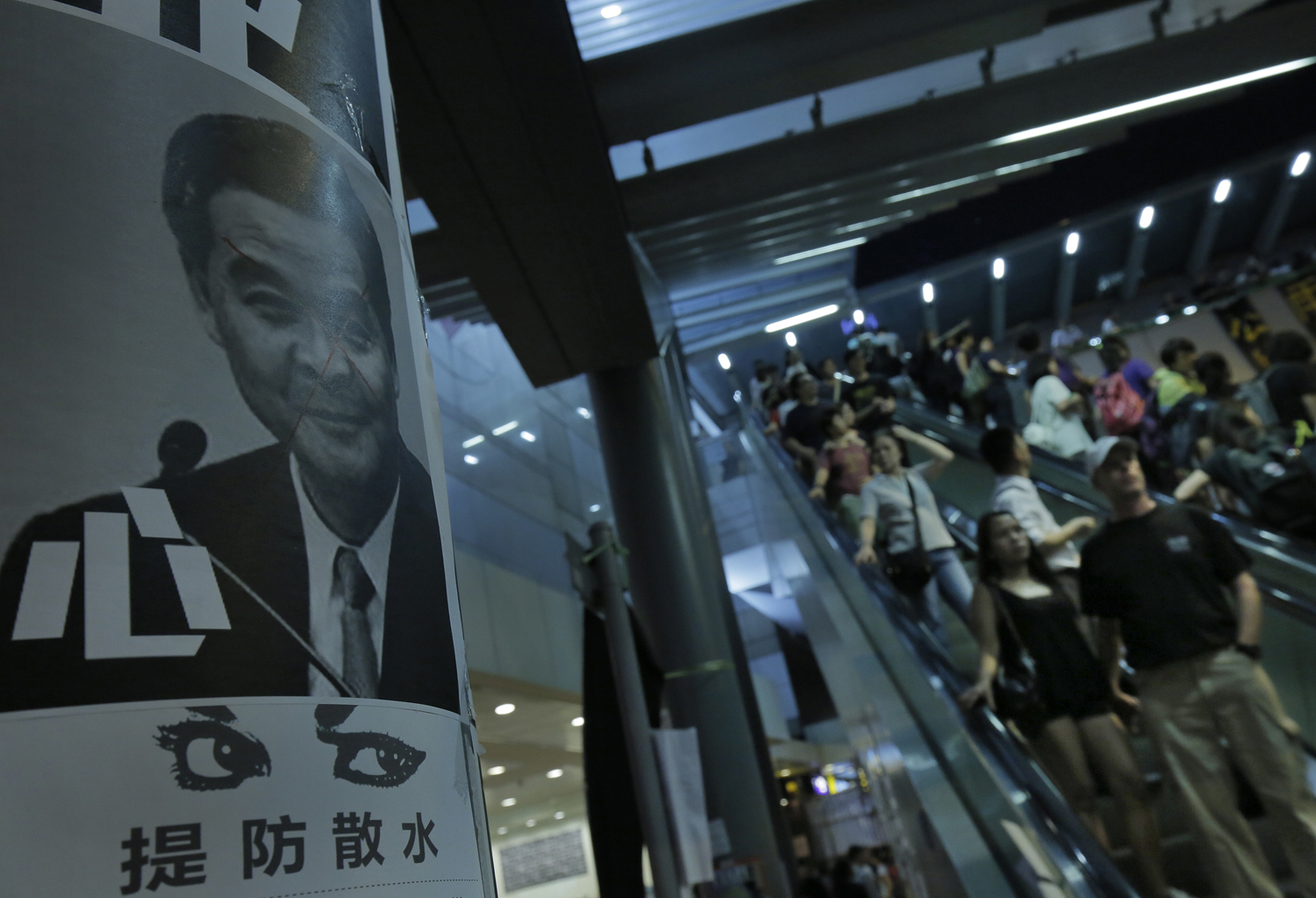
Hong Kong’s beleaguered Chief Executive Leung Chun-ying is facing swelling allegations of financial impropriety, after it emerged that he had received undeclared payments from an Australian company during his time in office — that’s according to an investigation published by Fairfax Media in Australia this week.
The article, appearing in the Age and other Fairfax newspapers, said the serving chief executive had pocketed “millions in secret fees from a listed Australian company in return for supporting its Asian business ambitions.”
Leung reportedly received more than $6 million in relation to an agreement struck between property-services firm DTZ, where he served as Asia-Pacific director before becoming chief executive, and Australian engineering company UGL.
Days before leaving DTZ, described as an “insolvent 200-year-old British property service,” Leung signed a contract promising him millions if he refrained from directly competing with UGL or DTZ and from poaching their staff. He was also required to act as a “referee and adviser” to UGL “from time to time.”
Leung resigned from DTZ on Nov. 24, 2011, three days before announcing his official candidacy for the office of chief executive. He left the company’s ranks on Dec. 4, one day after UGL acquired DTZ.
The report says Leung received the payment in two installments in 2012 and 2013, while he was serving as chief executive.
Concern and outrage has been expressed in Hong Kong that Leung allowed himself to be contracted to act as “referee and adviser” to a private company while serving as Hong Kong’s head of government.
Leung’s office was quick to defend his dealings as legal following the publication of the story on Wednesday and said he had done no work for UGL since assuming office.
“It is standard business practice to pay for such [noncompeting and nonpoaching] undertakings, as you are requiring the individual to take on obligations and to forgo future opportunities,” read a statement released by the chief executive’s office, which pointed out that there was no legal requirement for Leung to declare the payments, since they related to the period before his election.
Nevertheless, the revelations couldn’t have come at a worse time for Hong Kong’s widely reviled political chief. The financial hub has been rocked by unprecedented street demonstrations for nearly two weeks, with student-led protesters calling for greater democracy. There are also widespread calls for Leung’s ouster because he is seen as being more loyal to Hong Kong’s sovereign power China than he is to Hong Kong.
“Any person facing such a situation, if he has a sense of decency, should have resigned unless he can give a very convincing and satisfactory defense to all the charges now against him,” said Albert Ho, the former chairman of the Democratic Party, during a press conference in Hong Kong’s Legislative Council building on Thursday.
Lam Cheuk-ting, head of Hong Kong’s Democratic Party, said Leung bore a responsibility to declare the payments since “the contract period also covers part of Leung’s tenure.”
Despite the controversy and ongoing protests, Leung has repeated on several occasions that he has no desire to resign.
In a letter to the New York Times published on Thursday, the embattled chief executive attempted to bat away suggestions that Hong Kong’s core values were in peril and hit back at allegations that Beijing had reneged on its commitments to Hong Kong’s democratic future.
“Any suggestion that the Chinese government is ‘interfering’ in the current electoral reform debate is unfounded,” wrote Leung. “Hong Kong’s future electoral, economic and social development is a natural and legitimate concern of our sovereign, and is in keeping with the principle of the high degree of autonomy that Hong Kong enjoys.”
— With reporting by Rishi Iyengar / Hong Kong
More Must-Reads From TIME
- The 100 Most Influential People of 2024
- How Far Trump Would Go
- Scenes From Pro-Palestinian Encampments Across U.S. Universities
- Saving Seconds Is Better Than Hours
- Why Your Breakfast Should Start with a Vegetable
- 6 Compliments That Land Every Time
- Welcome to the Golden Age of Ryan Gosling
- Want Weekly Recs on What to Watch, Read, and More? Sign Up for Worth Your Time
Contact us at letters@time.com